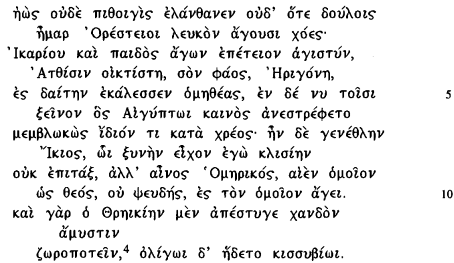flectere si nequeo superos, Acheronta mouebo.
(Aen. 7.312)If I cannot bend the gods above, it is Acheron I shall move.
So Juno claims, famously, expressing her determination to thwart the newlyforged alliance between Aeneas and the Italians, and setting in motion (through the agency of Allecto) the violence and passion that fuels the ‘Iliadic’ Aeneid—the ‘Energy of Hell’, as Philip Hardie calls it—energy necessary to sustain the momentum of a long narrative poem, a demonic ‘burst of power’ imitated by Vergil's successors—Lucan, Silius, and especially Statius, who opens the Thebaid with an embittered Oedipus summoning the dark forces of the underworld embodied in the Fury Tisiphone (Theb. 1.48ff.). Vergil's hexameter might also serve as a motto for Ramus to the degree that the journal has mounted a radical—and oedipal—critique over the last quarter century, assaulting the stuffy status quo in classical studies, finding a place ‘on the shelves of all the young and cool’, although those sons (and daughters), now a generation older, are themselves the new fathers, the new superi. Juno's claim so impressed Freud that he placed it on the title page of his magnum opus—The Interpretation of Dreams—anticipating psychoanalysis' assault on Western subjectivity and describing Freud's own exclusion from the academy, his circuitous ‘professional journey’. Years later Freud would maintain that the hexameter line provides a portrait of ‘repressed instinctual impulses’, suggesting that, long before the twentieth century, Vergil and his epic successors understood the project of psychoanalysis. ‘The poets and philosophers,’ Freud was fond of saying, ‘discovered the unconscious before I did.’

